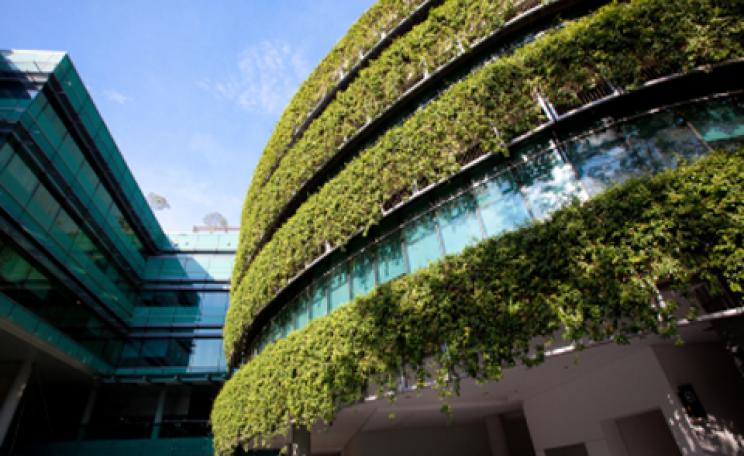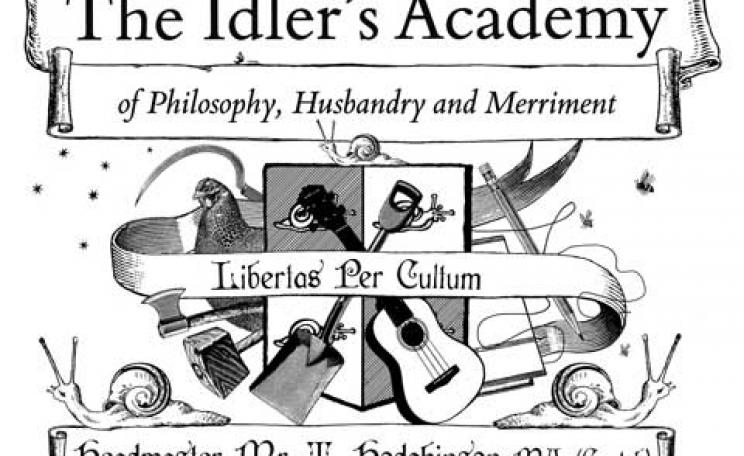Harvesting the potatoes in our vegetable patch today, I couldn’t help reflecting once again on the miracle of nature, how one seed can reproduce itself many times over. One small seed potato turns into many large potatoes. One pea grows into a cascade of flowers and pods, and the peas can be eaten straight from the pod, nature’s own M&Ms.
Really, the good gardener does very little: he simply wanders around and tries to provide the right conditions for each plant. Ninety-nine per cent of the work is done for you by nature: the rain comes, the sun shines and the seeds do their absolute best to grow up and make flowers and fruit. The best gardeners refrain as far as possible from interfering with the natural process.
In a world in which increasingly we are disconnected from nature by technology, gardening is a very simple way of reconnecting. It is immensely therapeutic, and deeply satisfying. It is a fantastic antidote to the busy culture that we have found ourselves in. Gardening offers myriad opportunities for reflection and contemplation: I often find myself simply leaning on the fence, staring at the crops. With a garden you don’t need to subject yourself to the routine and cost of meditation classes or yoga; just wander up there and you will meditate naturally.
You could make the same argument for Africa: gardening will save it. Instead of useless and costly aid projects, with bumptious aid workers zooming around in brand-new white Land Rovers and Toyota Land Cruisers, doling out American pharmaceuticals, there needs to be a return to subsistence farming – and this, in fact, according to Paul Theroux in his brilliant Dark Star Safari, is what tends to happen after the aid workers have gone back home to display their compassion to their friends. Feed the soil, sow seeds, cultivate your garden, as Voltaire advises in Candide.
The American dream is that technology – and more money; always more money – will save the world. Technology: for which read man’s own ingenuity; his battle, in a sense, against nature. Since the days of Thomas Hobbes, who famously described life as ‘nasty, brutish and short’, American Enlightenment thinking has been making efforts systematically to remove us from messy nature, to conquer it, through military and industrial means. Still today, despite the overwhelming evidence to the contrary, there are techno-futurists in the mode of HG Wells, who still believe money and technology will be the means through which we create a utopia. Hence we spend money, energy and creativity on vanities such as space travel, pharmaceuticals, cars, lightbulbs, computers, mobile phones, the BlackBerry, Viagra, Prozac, the internet, email, skyscrapers, oil extraction, plastics manufacture, television, Hollywood, secondary education, roadbuilding, air travel, holidays, second homes – when it would be much easier and cheaper simply to concentrate on giving ourselves each a garden to tend.
The vanities of the modern world have another unpleasant side effect: in promising a better tomorrow, they remove us from the present moment. Gardening roots us firmly in the present and doesn’t care about past or future. It is the now.
Gardens bring pleasure, satisfaction and nutrition. Each is unique to its owner: there are no two the same in the world. So when our high streets are homogenised, our cars all look the same and everyone all does the same thing, drinks Stella, wears jeans and hoodies and sits in front of the telly, the garden offers us an outlet for our own unique creativity. The garden is also a grove, a place for quiet contemplation and reflection. Add to this the fact that gardening is undeniably useful, as it provides cheap and delicious food for the family, and you have a real win-win combination, a genuine panacea for today’s ills.
Tending your own plot also returns creativity, pleasure and autonomy in work to your life. Most jobs are uncreative, boring and afford little control over your time. They are profoundly unsatisfying. They certainly lack beauty; workplaces tend to be horribly ugly. But feed the soil and sow seeds, and you will feed your self and your soul into the bargain.
Tom Hodgkinson is the Editor of The Idler and author of the book How to be Free (Hamish Hamilton, £14.99)
This article first appeared in the Ecologist May 2009





